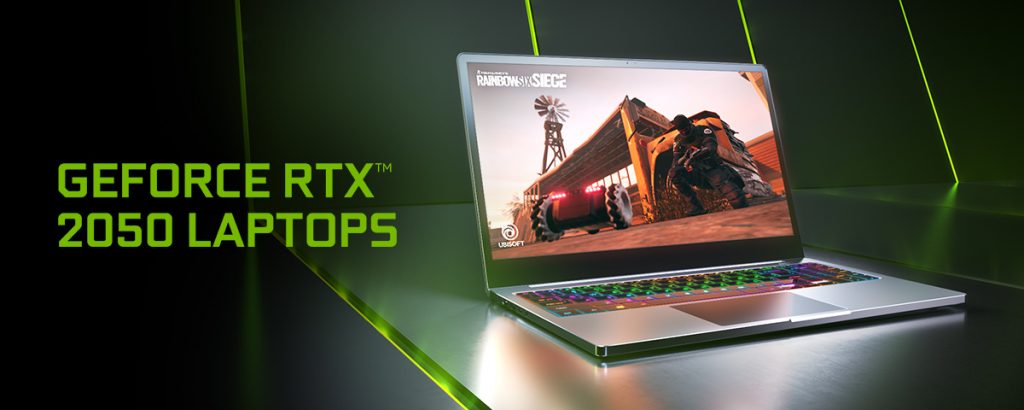
NVIDIA’s recently announced GeForce RTX 2050 & MX500 series laptop GPUs have been tested in 3DMark Time Spy & benchmarks aren’t looking that great.
NVIDIA’s GeForce RTX 2050 & MX500 GPUs Are Entry-Level Chips For Laptops & Their Performance So Far Looks Really Underwhelming
Now we get that these are entry-level GPUs designed to replace or offer something better over the integrated GPUs offered by AMD and Intel within their laptops but here’s the thing, not only are the specifications confusing but the parts may offer lackluster performance if these benchmarks are to be believed.
In our post from yesterday, we talked about how the NVIDIA GeForce RTX 2050 & MX570 GPUs featured an Ampere GPU (GA107) with 2048 cores and a 64-bit bus interface though there’s an underlying difference within the RT & Tensor cores that hasn’t been clarified by NVIDIA yet. The GeForce RTX 3050 has 4 GB while the MX570 has 2 GB GDDR6 memory. As for the MX550, it is based on the much older Turing TU117 architecture and features just 1024 cores and a 2 GB & 64-bit bus interface.
One interesting thing that Zhihu (via HXL) mentions is that the TGP for the new laptop GPUs determines not only how far the boost clock will be pushed but also the memory clock. At 20W, you get 11 Gbps, at 25-35W, you get 12 Gbps and at 40-45W, you get 14 Gbps memory speeds. The RTX 2050 runs at 30 – 45W which gives us 14 Gbps so it’s already faster than the MX570 which features a 15-25W design for 12 Gbps. The same is the case with the MX550.
NVIDIA GeForce RTX 2050 3DMark Time Spy Benchmark (Image Credits: Zhihu):
NVIDIA GeForce MX550 3DMark Time Spy Benchmark (Image Credits: Zhihu):
Now coming to the benchmarks, the RTX 2050 and GeForce MX570 are said to offer almost similar graphics performance and score around 3369 points. The GeForce MX550 scores 2510 points. Now compared to the GeForce RTX 3050, we are looking at 40-45% lower performance and that’s on the same architecture but with the RTX 3050 sporting higher clocks and a wider bus (128-bit). This can be considered GTX 1660 series performance in 2021 which could make for some decent gains over an iGPU. Now while there are ray-tracing cores on both these parts, don’t expect to get any decent performance out of them unless you are playing at 720p with DLSS set to max performance mode.
The NVIDIA GeForce MX550 on the other hand looks very underwhelming especially when we take into account the leaked AMD Ryzen 6000 ‘Rembrandt’ APU score of 2700 points in 3DMark Time Spy. It looks like the MX550 will either be on par or even loose against AMD’s RDNA 2 iGPU which makes this part pretty much DOA though we will still give it time till release to see if the final chip has some improvements over pre-release silicon and if the final drivers add some improvements but the same could be true for AMD’s Rembrandt APU in its final form.